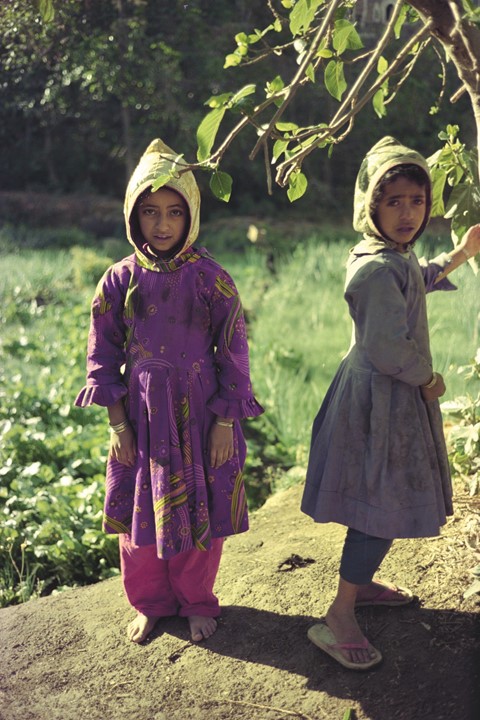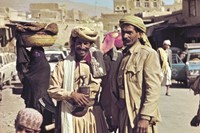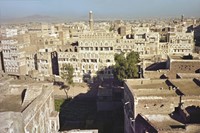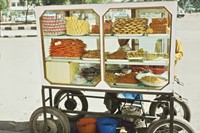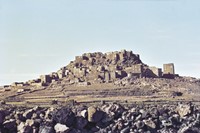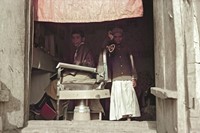With the country currently in the midst of a violent civil war, the artist is revisiting his evocative, decades-old negatives to “bring attention to the destruction”
Peter Schlesinger is predominantly known for his glamorous, sun-dappled photography. Much of his most-loved work during the 1960s and 70s was defined by a European escapist aesthetic, with portraits of era-defining artists – including his ex-lover David Hockney – lazing on hammocks, drinking al-fresco Aperols, and frolicking in the Mediterranean sand.
But in 1976, the California-born artist found himself on a very different kind of vacation. His boyfriend at the time, the photographer Eric Boman, had been invited to the war-torn Republic of Yemen for a fashion shoot. It was an unusual assignment: the country had been closed to foreigners for years due to a violent civil war, and tourism infrastructure was almost non-existent. Schlesinger, intrigued by its guarded borders and rich cultural history, was eager to tag along as Borman’s assistant.
Schlesinger took hundreds of pictures on his Pentax camera during the eight-day trip. He travelled around the country’s capital, Sanaa, before moving north to the medieval city of Sa’dah, turning his lens to the locals and landscapes. His photos captured the country’s crumbling ancient skyscrapers, revealing glimpses of opulent grandeur beneath the parched rubble. “The bleakness was in the extreme poverty,” Schlesinger remembers. “But the culture was unchanged for centuries. The architecture of Yemen is quite unique and marvellous, very lively and romantic. The clothing also hadn’t been internationalised yet.”
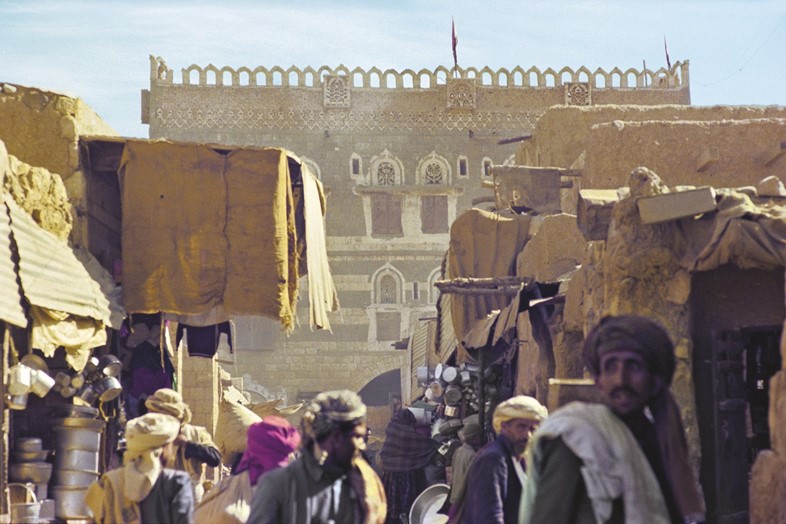
Nearly five decades on and Yemen is currently in the midst of another brutal civil war, with the now-ravaged Sa’dah one of its most prominent battlefields. As headlines concerning the region grow increasingly dire, Schlesinger decided it was time to revisit his original negatives. The result is a new photography book, Eight Days in Yemen, published this month by Damiani. “There has been so much sad news about Yemen the past few years with its civil war, death and destruction, and also the country has been so modernised since I was there,” he tells AnOther. “These images therefore became very relevant.”
The book comes with an introduction from Bernard Haykel, a professor at Princeton University and an expert on the Middle East, who encouraged Schlesinger to publish the photographs this year. They offer, in his words, a “spectacular, truthful and uncontrived” portrait of an ancient land untouched by tourism, and “a real feeling for the Yemenis, of different ages, genders and professions”. It’s a portrayal that feels particularly poignant, given the tragedy that looms over the country today. “I don’t get nostalgic; the pictures are just part of my life,” adds Schlesinger. “[But I hope they can] bring some attention to the devastation.”
Eight Days In Yemen, published by Damiani, is released in April.
